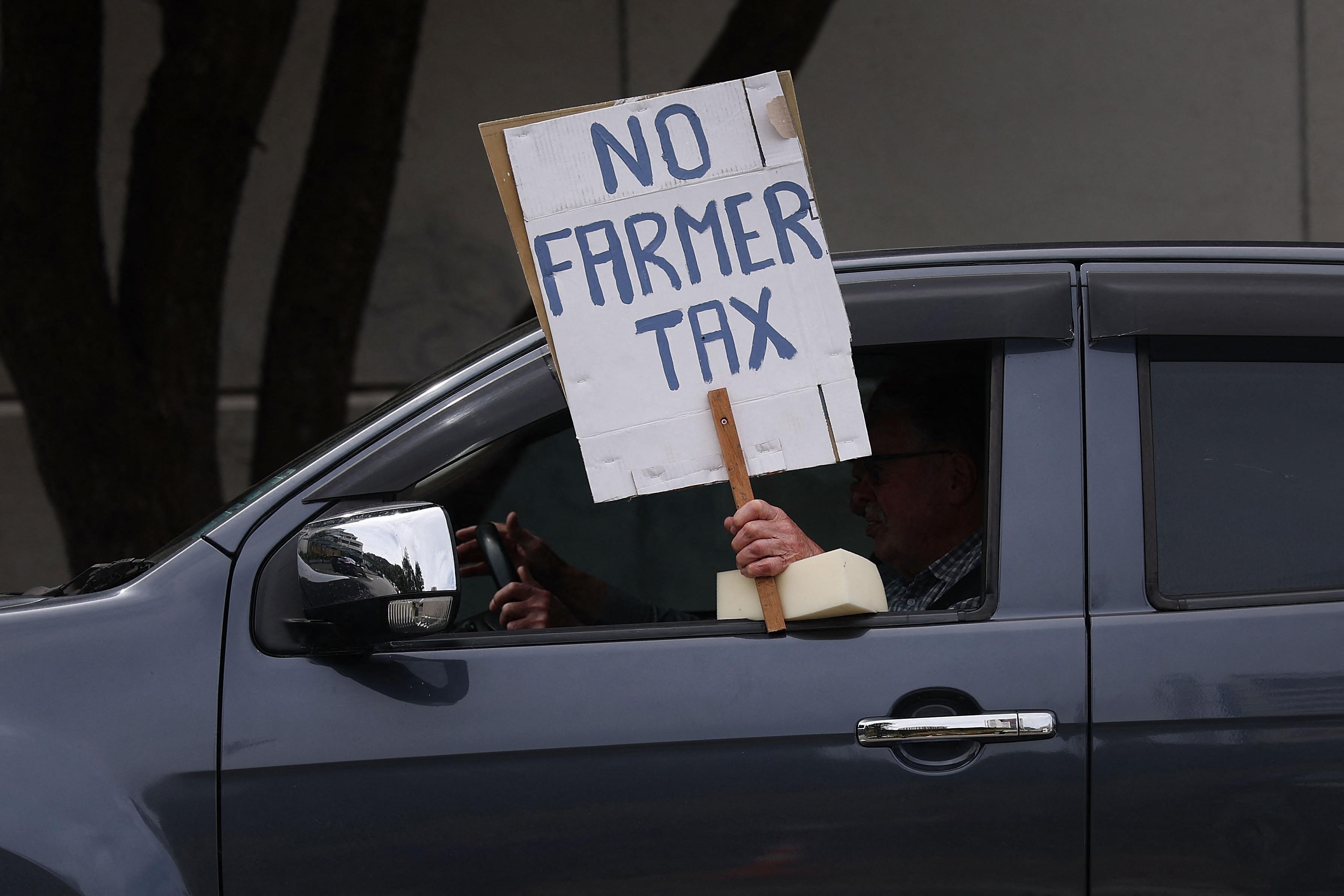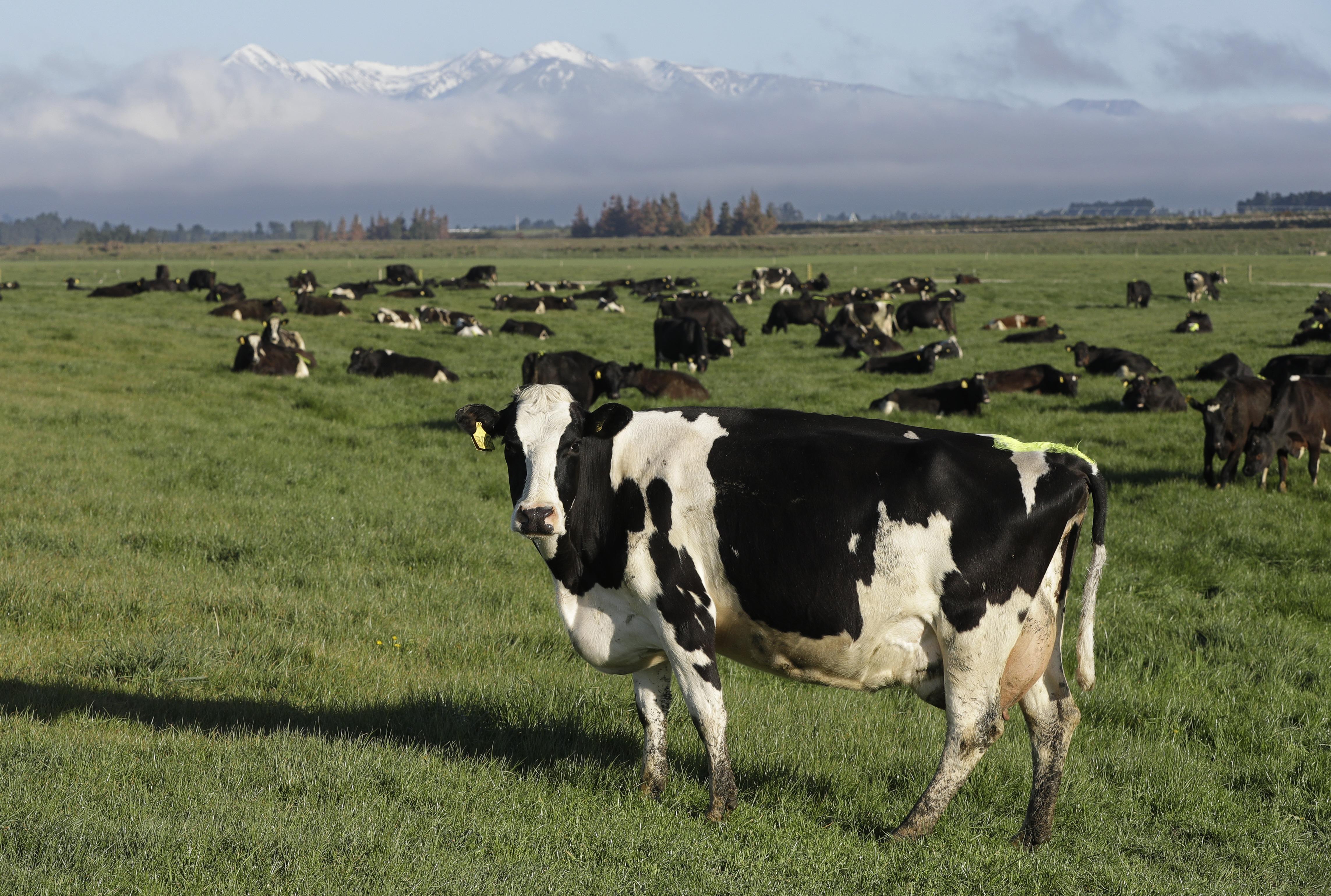 In this file photo taken on Oct 20, 2022, a man displays a sign during a protest against the government's plans to tax emissions from farm animals in Wellington, New Zealand. (PHOTO / AFP)
In this file photo taken on Oct 20, 2022, a man displays a sign during a protest against the government's plans to tax emissions from farm animals in Wellington, New Zealand. (PHOTO / AFP)
WELLINGTON - Rural voter anger at New Zealand's environmental policies to tackle climate change and reduce carbon emissions may contribute to a return of right-wing parties to power at an Oct 14 election, a shift that could diminish the country's green image.
A flirtation with the New Zealand Labour Party in the 2020 election by rural voters, some for the first time in decades, has ended due to environmental policies such as planting pine forests on grazing land and taxing livestock methane burps.
Warning that livelihoods are at stake, farmers are looking to conservative candidates who will unwind or delay these Labour policies.
New Zealand’s opposition center-right National Party is leading in opinion polls, with voting starting on Oct 2, but it is expected to need the support of at least one minor party to govern, probably the smaller further right-wing ACT party
Southland dairy farmer Bryce McKenzie and his sheep and beef farming mate Laurie Paterson set off at 40 kph onboard their John Deere tractors last week for a nationwide protest. The two will travel the length of New Zealand over 10 days to encourage rural communities to vote for a change.
READ MORE: New Zealand records 8 out of 10 warmest years in last decade
“Rural New Zealanders and farmers in particular have found things really difficult for the last six years and particularly the last three years when there has been a whole raft of regulations come in,” said McKenzie, who co-founded rural protest group Groundswell.
Farmers in New Zealand have staged several protests in the past two years against growing regulations and agricultural emission schemes. Similar farmer protests in the Netherlands against government environmental policies saw their protest party in March win sufficient support to shake up the country's senate.
New Zealand’s opposition center-right National Party is leading in opinion polls, with voting starting on Oct 2, but it is expected to need the support of at least one minor party to govern, probably the smaller further right-wing ACT party.
READ MORE: New Zealand tourist destination Queenstown hit by flooding
A Taxpayers' Union–Curia opinion poll in early September found that 58 percent of rural voters – those living in settlements of less than 1,000 people -- intended to vote National or ACT.
Green image at risk
New Zealand has been at the forefront of pushing through environmental changes to its agricultural sector, one of its biggest industries and one which produces around 50 percent of the country's emissions.
 In this file photo taken on Oct 8, 2018, dairy cows graze on a farm near Oxford, New Zealand. (PHOTO / AP)
In this file photo taken on Oct 8, 2018, dairy cows graze on a farm near Oxford, New Zealand. (PHOTO / AP)
Labour legislated a number of regulations over the past three years including new rules around water usage and protection of waterways, changing leases on high country ranches and making it easier for sheep and beef farms to be turned into pine plantations to offset carbon and to reduce the number of methane producing animals in New Zealand.
ALSO READ: NZ sees progress in biggest emission reduction project
New Zealand will also become the first country in the world to tax farmers for methane from animals from 2025.
If elected, National has promised to delay the introduction of any tax until at the latest 2030 and ACT will only introduce a tax when New Zealand’s main trading partners do.
Prime Minister Chris Hipkins said the country needed to continue to push forward with emission reduction policies including those related to farming, as not doing so was a credibility issue for the country.
"Our trade and tourism opportunities depend on it," he said in a statement.
Green Party co-leader James Shaw said New Zealand had to continue to reduce agriculture emissions because its "future economic security depends on our sustainability credentials".
ALSO READ: NZ forecasts much larger budget deficit but improved economy
However, farmers say they are desperate for a change in policies as they face rising regulatory costs, sharply lower commodity prices and on-farm inflation at around 16 percent in the past year.
Wayne Langford, president of farmer lobby group Federated Farmers, said recent policies had been impractical, difficult to implement and caused significant frustrations.
"We will probably see quite a large backing towards...the right-wing parties this year -- the National, ACT and New Zealand First -- because it's not necessarily that farmers are against some of what Labour were putting forward, it's more that they feel like they're not getting listened to, and that what's being put forward is not practical," Langford said.


